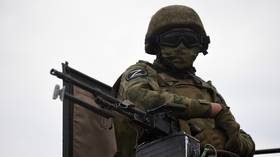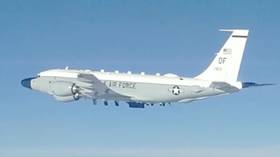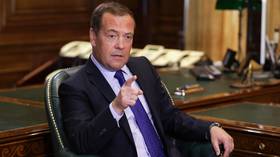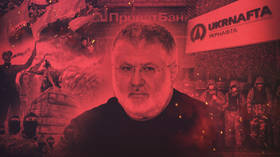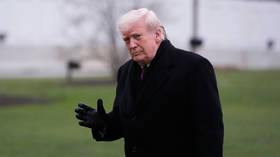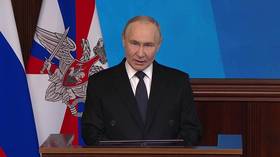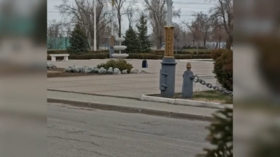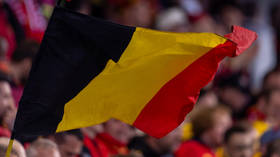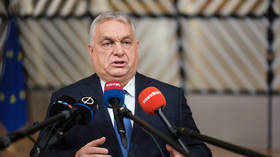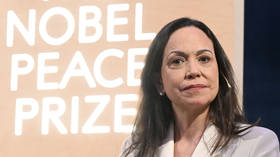Sergey Poletaev: Is Russian talk of using nuclear weapons just hot air or are Moscow's warnings serious?
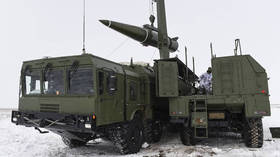
Just the other day, Moscow sharply upped the ante in the stand-off over Ukraine: it gave the go-ahead for referendums in territories formerly controlled by Kiev and announced a partial military mobilization. It also again issued a reminder that its actions are backed by the world’s most powerful weapons. This was immediately dubbed “nuclear blackmail” in the West.
So why are we hearing these hints over and over again? Is Russia really prepared to use such force, or is it just a form of verbal deterrence?
First, since the end of the Cold War there has been an imbalance between Moscow’s nuclear power, its economic capabilities, and its political weight in the world. Secondly, these weapons of mass destruction are perceived by our former adversaries as a relic of the past rather than a relevant factor in international relations today.
Russia, on the contrary, sees the nuclear arsenal as the basis of its sovereignty and has assumed that as long as we were still a great power in nuclear terms, we could also claim to be important in terms of foreign policy, even as an economic dwarf. It was the presumption of being a great power that determined our actions in Ukraine and throughout the post-Soviet space.
This difference in perception is the fundamental reason for the Ukrainian crisis, and it’s why we and the West cannot find any common ground to at least try to kick-start some sort of agreement.
Russia does not pretend that the West shares its views on Ukraine. If there were such illusions a decade or more ago, they have long since dissipated. The Kremlin now seeks to push Washington and Brussels out of the country, which it considers to be part of its vital interest zone, and if this fails, it hopes to reformat Ukraine as a state and remove its potential as a threat.
In this endeavor, Moscow doesn’t care what others think.
The West is stubborn, and this means Moscow’s years-long attempts to settle the matter with little blood spilled have failed. In the interim, things have only gotten worse, and we are now in the eighth month of a large-scale conflict in Ukraine, with Kiev having lost control over five regions since 2014.
We also have two armies facing each other, one with the largest country on earth at its rear and the other with the most powerful military bloc in history providing huge support.
By raising the stakes and again mentioning nuclear weapons, Russia is telling the West:
- The harder you push us and the more you drag us into this conventional conflict in Ukraine, the closer the nuclear scenario will be, both tactically (strikes against specific targets in the theatre of operations) and strategically (intercontinental missiles). The more you try to pin us down, the less choice you will leave us.
- There can be no winners in a nuclear war. So, your military victory in Ukraine is impossible. Thus, you have two options: either continue to help Kiev or withdraw your direct backing. Ukraine will lose either way, and you can lose with it, or you can limit your involvement – and survive.
It could be argued that the Kremlin’s vague hints are not aimed at finding détente, but rather are about promoting increased uncertainty and forcing the opponent to think about exactly where the red lines are drawn.
Firstly, for Russia, the number one military objective is to defeat the Ukrainian army (AFU). The Kremlin seems confident that after partial mobilization we can deal with the AFU and its western rear. But it is not certain that we will be able to handle the Western-supplied systems which have been deployed.
Secondly, it is likely that clear messages are being conveyed through closed channels to Western counterparts about what Moscow considers totally unacceptable. In any case, NATO has been very careful in its expansion of arms deliveries and has so far categorically not allowed its weapons to hit Russia’s core territory and Crimea, while also still not intervening with its air force and air defense.
What’s next? Well, there are three scenarios. Let’s label them by appropriate moods.
Black: In response to our actions, NATO raises the stakes again and intensifies its level of engagement to defeat Russia on the battlefield. This is the route to nuclear action, although there are still many more bridges to cross first.
Grey: Freezing the conflict in its current state with the perpetual non-recognition of Russia’s new borders. This leaves Ukraine torn apart and left to prepare for more fighting down the road, with ties between Russia and the West severed for many years.
Sunshine: For this to happen, awareness of the reality of the nuclear threat must become clear to the Western leadership. Then, and only then, will they lose interest in Ukraine. When it comes to Russia, on the other hand, it will make sense to restore relations, now in the full knowledge of what lines can’t be crossed in the future.
Then and only then can we finally move on.
This article was first published by Profile.ru
The statements, views and opinions expressed in this column are solely those of the author and do not necessarily represent those of RT.



